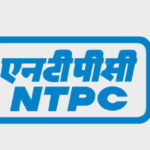Java is a prominent and widely used programming language in modern business. Despite emerging new languages and technologies, Java maintains its relevance due to its robustness, versatility, and extensive ecosystem. It remains a relevant and valuable choice for businesses in the modern landscape, offering a solid foundation for developing various applications, from enterprise systems to mobile apps.
Java is well known for its Platform Independence, Enterprise Applications, Community and Ecosystem, Security, Integration Capabilities, and other Modern features. It is also widely employed in Android development. Java is widely employed in extensive data ecosystems. We will delve into the Top 10 Java institutions in Chennai.
Following is the list of the Top 10 Java Training Institutes.
- FITA Academy
- Intellipaat
- Simplilearn
- Edureka
- Besant technologies
- Greens Technologys
- Infycle Technologies
- ACTE
- Softlogic Systems
- Credo Systemz
1. FITA Academy
FITA Academy is a reputable training institution that offers an extensive range of more than 120 courses, accessible through both online and offline modes. The institute is widely recognized for its proficiency in delivering essential professional certifications and providing extensive IT training, positioning itself as a leading authority in the industry. With a committed team of 1,000+ experienced trainers, each with a decade of expertise, the institute has positively impacted the educational journeys of more than 75,000 learners. The institute’s commitment to providing high-quality training opportunities is proven in its multiple branches situated in Bangalore, Pondicherry, Coimbatore, and Madurai, ensuring accessibility for individuals from diverse regions.
Why Java Training in Chennai at FITA Academy?
FITA Academy provides extensive Java Training in Chennai, spanning fundamental to advanced-level concepts. The curriculum caters to beginners and covers a diverse range of Java functions. They offer in-depth coverage of various concepts, beginning with fundamentals like Data Types, Variables, Methods, Classes, Objects, Collections, OOPS, File Handling, and Exception Handling, and progressing to more advanced topics such as JDBC, JSP and frameworks like Spring, Spring Boot, and Hibernate. The course is affordable, ensuring that the cost doesn’t hinder learning. FITA Academy provides flexibility in batch schedules, offering weekend and weekday classes to accommodate learners’ convenience. Moreover, participants receive placement support upon completing the training.
Customized Curriculum for Java Training in Chennai
The curriculum is meticulously designed, encompassing the fundamental core concepts of Java Programming, including Data Types, Operators, Variables, Objects, Constructors, Strings, and Arrays. It also provides students with insights on Inheritance, Abstraction, Encapsulation, and Polymorphism. The curriculum further covers topics such as Exception Handling, Collection Framework, Generics, Casting, and File Handling. Additionally, the program delves into advanced subjects like Thread Inner Classes, Servlets, Java Server Pages (JSP), MVC Architecture, and the Spring & Spring Boot Framework. The Spring module includes discussions on Data Integration and Access, Web Layer, Aspect-oriented programming (AOP), Security, and Boot. The curriculum also incorporates Hibernate Framework and Hibernate O/R Mappings.
Expert Trainers
FITA Academy takes pride in its Java instructors with practical industry expertise. These trainers are dedicated to providing theoretical knowledge and sharing valuable real-world insights with students. Their crucial role involves keeping learners informed about the latest industry trends, preparing them effectively for the dynamic field of Java.
Project Presentation Sessions
In FITA Academy’s Java Course in Chennai, an exceptional aspect is incorporating project presentation sessions. Recognizing the significance of practical experience in mastering Java and preparing for a successful career, these sessions empower students to apply Java principles in real-world scenarios, offering valuable hands-on exposure.
Complimentary Placement Sessions
FITA Academy’s dedication to Java Training in Chennai is beyond the classroom. They prepare students for the competitive job market. As part of this commitment, they provide complimentary placement sessions covering resume building, refinement of interview skills, job placement assistance, and career guidance. These sessions are carefully designed to assist students in reaching their career objectives. With a vast network of more than 1,500 partner companies, FITA Academy facilitates job placements for graduates, presenting various opportunities within the Java industry. This extensive network ensures that students enjoy access to promising career prospects, facilitating a smooth and successful transition into the professional world.
2. IntelliPaat
IntelliPaat specializes in delivering Java training for both beginners and advanced learners. While their curriculum includes valuable learning materials, they focus on providing online classes, potentially affecting the direct interaction between instructors and students. The course cost may be relatively higher compared to other institutes.
3. Edureka
Edureka provides comprehensive Java training with real-time assistance. Despite offering extensive facilities, their primary focus is online courses, which could impact direct interaction between trainers and aspirants.
4. Simplilearn
Simplilearn, a well-known online platform, offers a flexible Java Training Course covering fundamental to advanced-level concepts. Their specialization in online courses may influence direct interaction between learners and trainers and come with a high price.
5. Besant Technologies
Besant Technologies specializes in delivering Java Training to enhance skills and provide valuable industry knowledge. However, it might not be the best fit for those seeking a more in-depth learning experience.
6. Greens Technologys
Greens Technologys offers specialized Java Training tailored to industry-specific requirements. However, their placement support might not be as comprehensive compared to some other institutes.
7. Infycle Technologies
Infycle Technologies provides an extensive Java course, offering essential skills. However, this course might not be the preferred choice for learners seeking a more extensive and in-depth learning experience.
8. Softlogic Systems
Softlogic Systems specializes in providing tailored Java Training for industry-specific needs. However, their practical training aspect may not be as comprehensive compared to other institutes.
9. ACTE
ACTE specializes in providing Java Training, covering comprehensive concepts. While they offer all these benefits, their level of placement support might be relatively less extensive compared to certain other institutes.
10. Credo Systemz
Credo Systemz offers Java courses with a focus on imparting essential skills. However, it’s worth noting that their practical training component may not be as extensive as some other institutes.
Freshers Jobs meticulously selected these institutes after thorough research, taking into account factors such as brand reputation, student feedback, and a proven track record of student achievements.
Role of Java in the Current Business Environment
Java is known for its “write once, run anywhere” (WORA) philosophy. Java programs are capable of running on any device or platform with a Java Virtual Machine (JVM). This cross-platform compatibility is particularly valuable in the business world, where diverse systems and devices are used. It is widely used in the development of enterprise-level applications. Many large-scale and mission-critical systems, such as customer relationship management (CRM) software, enterprise resource planning (ERP) systems, and banking applications, are built using Java. Java’s robustness and scalability make it well-suited for handling complex business processes. Java is widely employed for web development, particularly in creating server-side applications. Java-based frameworks such as Spring and JavaServer Faces (JSF) are popular for building scalable and maintainable web applications. Java’s role in web development has evolved with the introduction of technologies like JavaServer Pages (JSP) and Servlets.
Although Java’s presence in mobile development has diminished with the rise of native and cross-platform frameworks like Kotlin (Android) and Swift (iOS), Java is still relevant. Android applications are often built using Java, and the language continues to be a part of the Android development ecosystem. Java is widely used in the extensive data ecosystem, particularly in Apache Hadoop and Apache Spark projects. Many big data processing tasks, analytics, and science applications leverage Java due to its performance and scalability. It is commonly used in cloud-based applications and services. Its ability to scale and handle large workloads makes it suitable for cloud environments. Additionally, Java has been an integral part of developing cloud-native applications. Java is used in IoT development, providing a platform-independent language for developing applications that run on IoT devices. Java’s versatility is beneficial in the diverse and fragmented world of IoT. Java has a vast and active developer community.
What is Java?
Java is a high-level and object-oriented programming language which is designed to be platform-independent, enabling developers to create code that is capable of executing on any device or OS equipped with a Java Virtual Machine (JVM). Java has become one of the most popular and widely employed programming languages, and it is known for its simplicity, portability, and versatility. It remains a popular choice for building various applications and systems. The availability of libraries, frameworks, and tools makes it easier for businesses to find solutions and support for their development needs. Many legacy systems and applications are built with Java. Businesses continue to use Java for maintaining and updating these systems, ensuring the longevity and stability of their software infrastructure.
Significance of Java
- Versatility: Java is a versatile language in various domains, including web development, mobile applications, enterprise systems, big data processing, cloud computing, and more. Its versatility contributes to its widespread adoption across different industries.
- Object-Oriented Programming: Java is an OOPs language that promotes encapsulation, inheritance, and polymorphism principles. OOP concepts contribute to code organization, reusability, and maintainability, making Java an excellent choice for building complex and scalable systems.
- Robust and Reliable: Java’s design emphasizes reliability and robustness. The language includes features like automatic memory management (garbage collection), exception handling, and strong type-checking, reducing the likelihood of programming errors and enhancing application stability.
- Large Ecosystem and Community: Java has a vast and active developer community supported by a rich ecosystem of libraries, frameworks, and tools. This makes it easier for developers to find solutions, share knowledge, and collaborate on projects. Popular Java frameworks like Spring have further contributed to the ecosystem’s growth.
- Enterprise-level Applications: Java is widely used in the development of enterprise-level applications. Its ability to handle large-scale systems, combined with features such as multithreading and concurrency, makes it suitable for building robust and scalable business applications.
- Security: Security is given significant importance in Java. The language includes built-in security features, and the JVM provides a secure execution environment. This is especially crucial for applications in sensitive finance, healthcare, and government domains.
- Continuous Evolution: Java has a history of continuous improvement and adaptation to emerging technologies. Regular updates and introducing features in newer Java versions keep the language relevant and ensure that developers can leverage the latest advancements in the industry.
- Backward Compatibility: Java maintains a high degree of backward compatibility, allowing existing Java applications to run on newer versions of the JVM without major modifications. This is important for businesses with large codebases, as it reduces the cost and effort of migrating to newer Java versions.
- Community-driven Development: Java’s development is guided by the Java Community Process (JCP), which involves input from the community in shaping the language’s future. This collaborative approach ensures that the language evolves to meet the changing requirements of developers and businesses.
Key Components of Java
- Java Virtual Machine (JVM): The Java Virtual Machine is a vital aspect of the Java platform. It provides an execution environment for Java bytecode, enabling Java applications to run on any device or platform with a compatible JVM. The JVM manages memory, provides runtime support for Java programs, and ensures platform independence through its ability to interpret and execute bytecode.
- Java Development Kit (JDK): The JDK is a software development kit that includes tools necessary for Java development. It contains the compiler (javac) for compiling Java source code into bytecode, the JVM for running Java applications, and other development tools and utilities.
- Java Runtime Environment (JRE): The JRE is a subset of the JDK and includes the JVM and other libraries needed to run Java applications. It does not include development tools like the compiler. End-users typically need the JRE to execute Java applications on their machines.
- Java Standard Edition (Java SE): Java SE, also known as J2SE (Java 2 Platform, Standard Edition), is the core Java platform. It offers the foundation for developing and running general-purpose Java applications. Java SE includes libraries, APIs, and the core functionality of the Java language.
- Java Enterprise Edition (Java EE): Java EE, now known as Jakarta EE, extends the Java platform to support large-scale, enterprise-level applications. It includes additional APIs and libraries for features such as web services, distributed computing, and enterprise application development.
- Java Micro Edition (Java ME): Java ME is designed to develop mobile and embedded application applications, making it suitable for the Internet of Things (IoT). It provides a scaled-down version of the Java platform for resource-constrained environments.
- Java Language: The Java language itself is a key component. It is a class-based, object-oriented language with syntax similar to C++. Java’s language features include classes, objects, inheritance, polymorphism, encapsulation, and interfaces.
- Java APIs (Application Programming Interfaces): Java provides a vast set of APIs that developers can use to access pre-built functionality. These APIs cover many areas, including networking, database connectivity, graphical user interfaces (GUI), input/output, and more. Examples include the Java Standard Edition API (java.util, java.io) and Java Enterprise Edition API (Java Servlet API, Java Persistence API).
- Java Class Library: The Java Class Library is a collection of pre-compiled classes and methods that provide common functionality. It includes packages such as java.lang, java.util, java.io, and others. Developers can leverage these classes to accelerate development and avoid reinventing the wheel.
- Integrated Development Environment (IDE): While not a part of the core Java platform, IDEs such as Eclipse, IntelliJ IDEA, and NetBeans are essential tools for Java developers. They provide features like code editing, debugging, and project management, enhancing development.
Job Opportunities in the Java field
The Java field offers various job opportunities across various domains and industries. Java is a versatile and widely employed programming language, and its popularity has resulted in a consistent demand for skilled Java developers.
- Software Engineer/Programmer: Software engineers or programmers who specialize in Java work on developing, testing, and maintaining software solutions. They may be involved in different stages of the software development life cycle.
- Web Developer (Java-based): Java is commonly used in web development, and web developers with expertise in Java frameworks like Spring, JavaServer Faces (JSF), and others are in demand. They create dynamic, scalable, and secure web applications.
- Mobile App Developer (Android): Java is the primary language for Android app development. Android developers proficient in Java create mobile applications for smartphones and tablets, leveraging the Android SDK and related tools.
- Java Developer: Java developers are professionals responsible for designing, implementing, & maintaining Java-based applications. They work on diverse projects using Java and related technologies, from web development to enterprise-level applications.
- Full-Stack Developer (Java): Full-stack developers proficient in Java work on applications’ front-end and back-end components. They may use Java frameworks for server-side development and JavaScript frameworks for the front end.
- Cloud Engineer (Java): With the rise of cloud computing, there is a demand for Java developers with expertise in deploying and managing Java applications on cloud platforms like AWS, Azure, or Google Cloud.
- Big Data Developer (Java): Java is widely used in big data processing frameworks such as Apache Hadoop and Apache Spark. Developers in this domain work on processing and analyzing large datasets using Java.
- Quality Assurance (QA) Engineer (Java): QA engineers with Java skills focus on testing Java applications, ensuring the quality and reliability of the software. They may use testing frameworks and tools compatible with Java.
- Enterprise Java Developer: Enterprise Java developers focus on building large-scale, mission-critical business applications. They often work with Java EE (Enterprise Edition) technologies and frameworks for developing robust and scalable solutions.
- Java Architect: Java architects design the overall structure of Java applications, making high-level design decisions and ensuring that the system’s architecture aligns with business goals. They often have experience in designing scalable and maintainable systems.
- DevOps Engineer (Java): DevOps engineers with Java skills work on integrating development and operations processes. They may be responsible for automation, continuous integration, and deployment pipelines for Java-based applications.
- Technical Lead/Manager (Java): Technical leads or managers in the Java field oversee development teams, guide architectural decisions, and ensure that projects are delivered on time and within specifications.
- Educator/Trainer (Java): Individuals with expertise in Java may also find opportunities in education and training, either as instructors at educational institutions or as trainers for corporate learning programs.
These are just a few examples, and the Java field continues to evolve, creating new job roles and opportunities.
It’s worth noting that the demand for Java developers extends globally, making it a valuable skill for those entering or advancing in software development. Additionally, staying updated with the latest Java technologies and frameworks enhances career prospects in this dynamic field. We explored the Top 10 Java Training Institutes in Chennai. We also delved into the role of Java in the modern business era, its significance, key aspects and job opportunities available in the Java realm.





